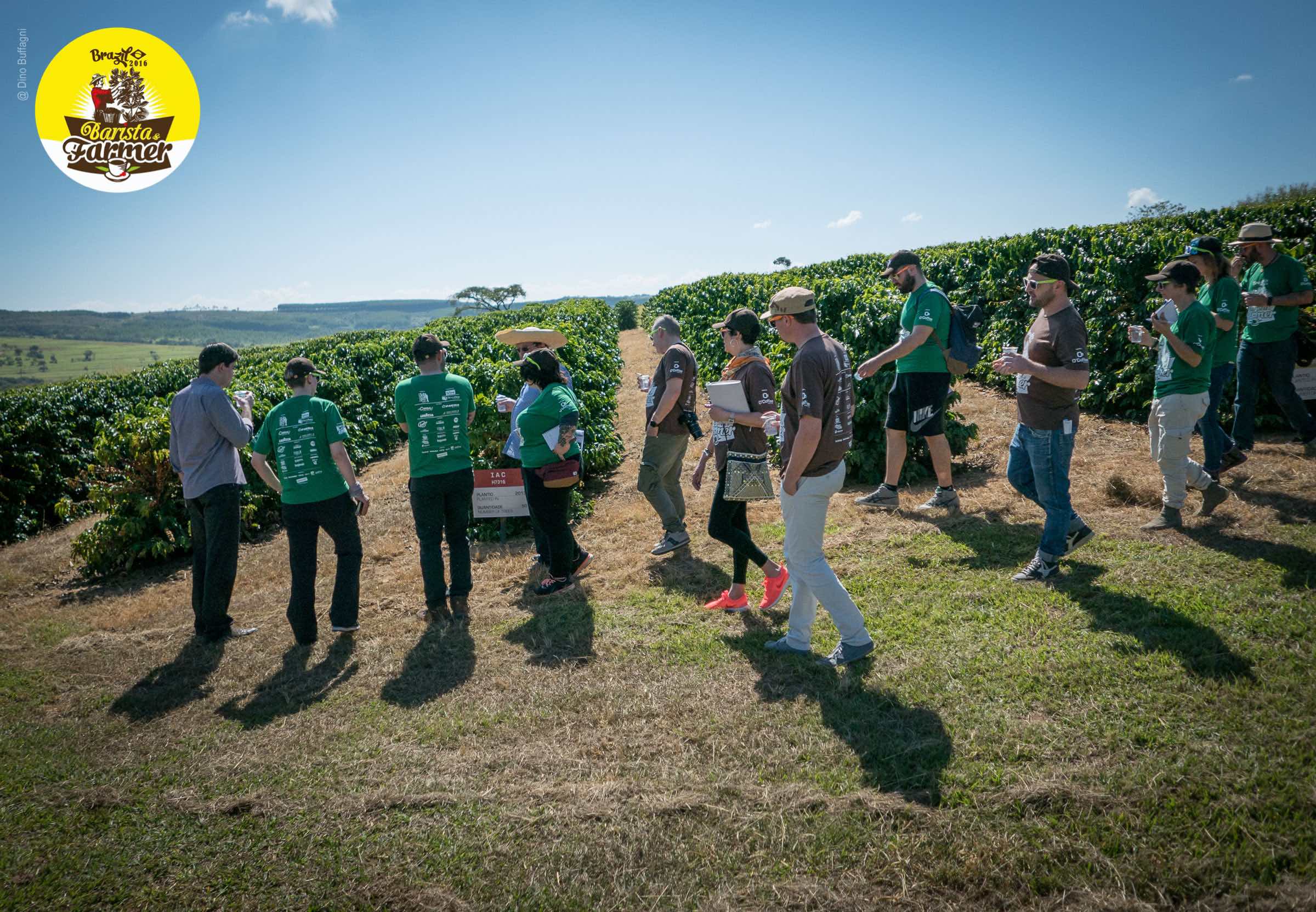SAN PAULO (Brazil) – Barista & Farmer (www.baristafarmer.com), day 2: the morning started with a field session aimed at understanding, from a practical point of view, the different botanical varieties of arabica, touching first hand the morphological, productive and qualitative differences.
In the brazilian production areas it’s possible to find a huge attention toward quality because, even though Brazil is the biggest coffee producer, sellers know that a better coffee will be paid more. In the afternoon, the baristas attended a class at the academy dedicated to the Flavor wheel, a system invented by Meilgaard and mutuated by the wine world, s usually happens with all the tools dedicated to sensory analisis. The flavor wheel is therefore applied to the quality control systems.
Today, the ten international baristas will test themselves for the first time against a real plantation: the alarm is set at five o’clock in the morning, it’s picking time. Barista & Farmer, after this preview, is about to start for real.
Interview with Alberto Polojac, director of the Academy of Barista & Farmer
“I knew I was coming in a land where possiblities are endless: any kind of production process, from the commercial to the specialty, going through single lots for unique botanical varieties and so I decided to let the students understand and experience first hand everything that can happen in a brazilian production. The specialty world is always a bit complex because it represents, mainly, a niche, but a very important one, because that niche can drive the entire market. The specialty is still minor in terms of sheer volume but is able to move the market toward new trends and new type of consumption with an innovative approach if compared to the traditional trade.
Generally speaking, Brazil, besides being the biggest coffee producer in the world, is also a producer of natural coffee. That means that, after the cherries are picked, the product is then left to dry over raised beds, in the best cases or, in the case of more commercial coffees, over some patios, made of concrete. Natural coffee develops in the cup a product that has more body, more balanced with accentuated notes of caramel combined with warm aromas like the different types of nuts, for example almonds, peanuts and roasted hazelnuts and this is why this is one of the most imported products in Italy, because it gives balance to espresso coffee, notoriously very well balanced and without big acidic undertones, where all of this elements are kept together by the properties of the brazilian coffee.
In particular, here at O’Coffee, it’s possible to find not only the commercial and natural coffee but also the one created with more sperimental production processes. There are also the natural coffees prepared in a peculiar way those come from a single lot of a single botanical variety and the seminatural coffees that here are called “natural pulp”, besides the washed coffees which represent, for Brazil, something very rare, something seen more often in Africa or central America”.
















